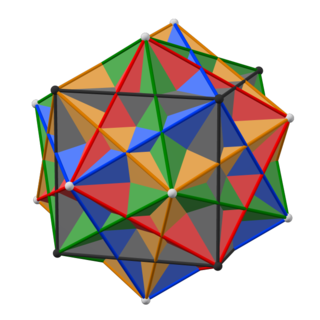Related Research Articles
15 (fifteen) is the natural number following 14 and preceding 16.
17 (seventeen) is the natural number following 16 and preceding 18. It is a prime number.
79 (seventy-nine) is the natural number following 78 and preceding 80.
73 (seventy-three) is the natural number following 72 and preceding 74. In English, it is the smallest natural number with twelve letters in its spelled out name.
31 (thirty-one) is the natural number following 30 and preceding 32. It is a prime number.
1000 or one thousand is the natural number following 999 and preceding 1001. In most English-speaking countries, it can be written with or without a comma or sometimes a period separating the thousands digit: 1,000.
300 is the natural number following 299 and preceding 301.

360 is the natural number following 359 and preceding 361.
500 is the natural number following 499 and preceding 501.
700 is the natural number following 699 and preceding 701.
600 is the natural number following 599 and preceding 601.
800 is the natural number following 799 and preceding 801.
900 is the natural number following 899 and preceding 901. It is the square of 30 and the sum of Euler's totient function for the first 54 positive integers. In base 10, it is a Harshad number. It is also the first number to be the square of a sphenic number.
2000 is a natural number following 1999 and preceding 2001.

1,000,000, or one thousand thousand, is the natural number following 999,999 and preceding 1,000,001. The word is derived from the early Italian millione, from mille, "thousand", plus the augmentative suffix -one.
100,000 (one hundred thousand) is the natural number following 99,999 and preceding 100,001. In scientific notation, it is written as 105.
216 is the natural number following 215 and preceding 217. It is a cube, and is often called Plato's number, although it is not certain that this is the number intended by Plato.
225 is the natural number following 224 and preceding 226.
100,000,000 is the natural number following 99,999,999 and preceding 100,000,001.
168 is the natural number following 167 and preceding 169.
References
- ↑ Sloane, N. J. A. (ed.). "SequenceA000040(The prime numbers)". The On-Line Encyclopedia of Integer Sequences . OEIS Foundation.
- ↑ Sloane, N. J. A. (ed.). "SequenceA031157(Numbers that are both lucky and prime)". The On-Line Encyclopedia of Integer Sequences . OEIS Foundation.
- ↑ Sloane, N. J. A. (ed.). "SequenceA024770(Right-truncatable primes: every prefix is prime)". The On-Line Encyclopedia of Integer Sequences . OEIS Foundation.
- ↑ Sloane, N. J. A. (ed.). "SequenceA077390(Primes which leave primes at every step if most significant digit and least significant digit are deleted until a one digit or two digit prime is obtained)". The On-Line Encyclopedia of Integer Sequences . OEIS Foundation.
- ↑ Sloane, N. J. A. (ed.). "SequenceA006932(Number of permutations of [n] with at least one strong fixed point)". The On-Line Encyclopedia of Integer Sequences . OEIS Foundation.
- ↑ Sloane, N. J. A. (ed.). "SequenceA048267(Largest integer requiring n fifth powers to sum to it, starting with n=28)". The On-Line Encyclopedia of Integer Sequences . OEIS Foundation.